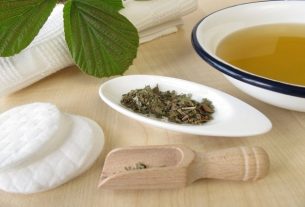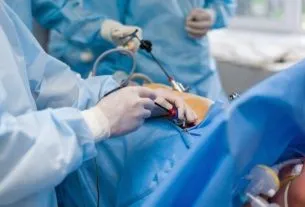Treatment for gastroesophageal reflux usually begins with some lifestyle changes, as well as dietary adaptations, as in many cases, these relatively simple changes are able to alleviate symptoms, without the need for any other type of treatment.
However, if symptoms do not improve, the gastroenterologist may recommend the use of some medications, which can be used long-term, or only during symptom attacks. Check out the most common symptoms in cases of gastroesophageal reflux.
In more complicated cases, where not even medication is able to improve symptoms, and complications begin to arise, such as ulcers or Barrett’s esophagus, for example, the doctor may advise surgery to try to resolve the cause of the reflux. .

5 treatments for gastroesophageal reflux
The main forms of treatment for reflux include:
1. Lifestyle changes
People who have a less healthy lifestyle are at greater risk of developing various health problems. One of these problems is the excessive production of stomach acid, which can end up causing reflux symptoms.
Therefore, anyone who suffers from reflux, or even wants to avoid its occurrence, should follow these instructions:
- Maintain an adequate weight, as excess weight causes greater pressure in the abdominal region, increasing the chances of gastric acid returning to the esophagus, worsening symptoms;
- Avoid smoking, as cigarettes can affect the ability of the esophageal sphincter to close, allowing reflux to occur more frequently;
- Do not lie down within 2 hours after eating, as it is during this period that there is a greater amount of acid in the stomach;
- Avoid wearing very tight clothing, especially high-waisted shirts and pants, as they can put pressure on the stomach area and worsen reflux.
Furthermore, it is also very important that, when lying down, you try to keep the head of the bed higher than the foot. To do this, you can place something under the mattress or place wooden blocks under the legs of the headboard. Preferably, the headboard should be elevated between 15 and 20 cm.
2. Diet adaptations
In addition to the lifestyle changes indicated above, there are also other simple and natural techniques that help alleviate symptoms and are mainly related to diet.
Therefore, it is recommended that you eat meals more regularly, every 3 hours, for example, but with a smaller quantity of food. This helps keep the stomach less full and makes it easier to empty, preventing reflux.
Furthermore, increasing the consumption of vegetables and fruits, as well as avoiding less healthy foods, such as processed foods, red meat and fried foods, also reduce the amount of gastric acid, relieving symptoms. Another important tip is to regulate the consumption of some drinks, especially those that have been closely linked to the emergence of reflux, such as soft drinks, carbonated drinks, coffee and alcoholic drinks.
See in more detail what the diet should be like for those suffering from gastroesophageal reflux.
3. Use of medications
Most of the time, medications for reflux are recommended by the doctor only as an SOS, that is, to be used during a reflux crisis, which can arise when some types of food are consumed in excess.
However, the medicines can also be used for longer periods of time, especially in people who have very strong and frequent symptoms. Some of the most recommended include:
- antacids, such as magnesium hydroxide or aluminum hydroxide: neutralize the acidity of the stomach and prevent the burning sensation in the esophagus;
- Acid production inhibitors, such as omeprazole, esomeprazole or pantoprazole: inhibit the production of acid in the stomach, reducing the burning caused by reflux;
- Gastric emptying accelerators, such as metoclopramide and domperidone: accelerate stomach emptying, reducing the time that food remains in this organ;
- gastric protectors, such as sucralfate: they form a protective barrier on the mucosa of the stomach and esophagus, reducing the burning caused by stomach acid.
Therefore, since the symptoms and causes of reflux vary greatly from one person to another, medications should always be prescribed by a doctor, who will evaluate the clinical history and indicate the doses and duration of medication treatment.
Find out more about the main medications used to treat reflux.
4. Use of home remedies
In milder cases of reflux, home remedies can be an excellent natural way to alleviate symptoms. Some of the most recommended include ginger tea, chamomile tea and aloe vera juice, for example, which can be taken when the first burning symptoms appear. See how to prepare these and other home remedies for reflux.
Although they are a good natural way to help alleviate symptoms, home remedies should not replace medications prescribed by a doctor, and should only be used as a complement to the indicated treatment.
5. Surgery
Surgery for gastroesophageal reflux is normally only used as a last resort, in more complicated cases where symptoms have not improved with lifestyle changes, dietary adjustments or the use of medication.
In these cases, the surgeon performs surgery with the aim of strengthening the esophageal sphincter, in order to prevent gastric acid from rising into the esophagus.
There are several surgical techniques that can be performed by a doctor, such as transoral incisionless fundoplication (TIF), which is performed endoscopically in which a device called EsophyX is used to create an anti-reflux valve, and is normally indicated in cases of anatomical changes, such as hernia. hiatus.
However, the surgical technique most commonly used by doctors is the Nissen fundoplication, performed laparoscopically and designed to create an anti-reflux valve enclosing the upper part of the stomach around the esophagus, which helps prevent stomach acid from rising. to the esophagus.
The type of surgery should always be selected together with the surgeon, according to the cause of the reflux. Understand better how reflux surgery is performed and what recovery is like.

Sign up for our newsletter and stay up to date with exclusive news
that can transform your routine!
Warning: Undefined array key "title" in /home/storelat/public_html/wp-content/plugins/link-whisper-premium/templates/frontend/related-posts.php on line 12
Warning: Undefined array key "title_tag" in /home/storelat/public_html/wp-content/plugins/link-whisper-premium/templates/frontend/related-posts.php on line 13



